We are pleased to announce Dr. Michael Shermer’s brand new 12-lecture Audible Original Course: Conspiracies & Conspiracy Theories — What We Should and Shouldn’t Believe — and Why, available now from audible.com. PLUS, in Science Salon # 83, Michael Shermer speaks with Peter Boghossian about his new book How to Have Impossible Conversations: A Very Practical Guide.
Tags
-
browse by topic
human rights
eSkeptic for September 17, 2019
Peter Boghossian — How to Have Impossible Conversations: A Very Practical Guide
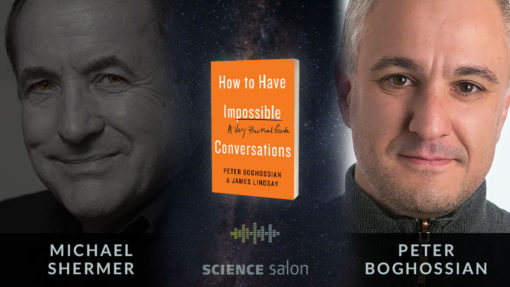
In our current political climate, it seems impossible to have a reasonable conversation with anyone who has a different opinion. Everyone seems to be on a hair trigger. This conversation is a guide to straightforward, practical, conversational techniques necessary for every successful conversation — whether the issue is climate change, religious faith, gender identity, race, poverty, immigration, or gun control.
Bruce Hood — Possessed: Why We Want More Than We Need
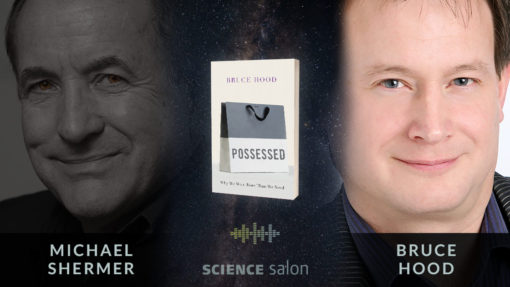
Psychologist Bruce Hood explains why our uniquely human preoccupation with ownership governs our behavior, even when it is often irrational, and destructive. Possessed is the first book to explore how ownership has us enthralled in relentless pursuit of a false happiness, with damaging consequences for society and the planet — and how we can stop buying into it.
eSkeptic for September 3, 2019
In Science Salon # 81, Michael Shermer speaks with award-winning University of Bristol psychologist Bruce Hood about his brand new book, Possessed: Why We Want More Than We Need, which draws on research to explain why our uniquely human preoccupation with ownership governs our behavior from the cradle to the grave, even when it is often irrational, and destructive.
eSkeptic for July 30, 2019
In Science Salon # 77, an engaging conversation on the nature of science, Dr. McIntyre and Dr. Shermer get deep into the weeds of where to draw the line between science and pseudoscience. PLUS Dr. John Glynn reflects on our ever-increasing sensitivity to the perception of harm in an article about concept creep.
eSkeptic for March 27, 2019
Dr. Raymond Barglow discusses three mistaken approaches to the opioid epidemic in this article that appeared in Skeptic magazine 24.1 (2019). Plus, Michael Shermer dialogues On Freedom with New York Times bestselling author Cass Sunstein.
Cass R. Sunstein — On Freedom
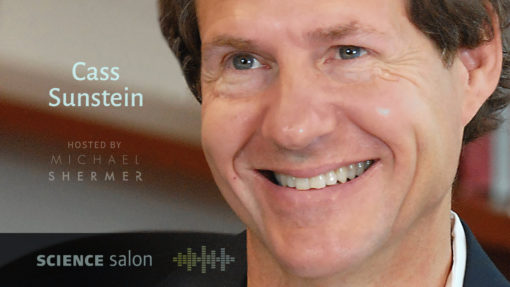
Cass Sunstein asks us to rethink freedom. He shows that freedom of choice isn’t nearly enough. Drawing on perspectives from the humanities, religion, and the arts, as well as social science and the law, Sunstein explores a crucial dimension of the human condition that philosophers and economists have long missed — and shows what it would take to make freedom real.
eSkeptic for March 20, 2019

What is it about the human mind that so effortlessly translates natural events into messages from another realm — even despite our best attempts to deny that there’s any message in them at all?
Ben Shapiro — The Right Side of History: How Reason and Moral Purpose Made the West Great

In Science Salon # 58, Michael Shermer and noted conservative political commentator and public intellectual Ben Shapiro discuss and debate “what made the West great” in this wide ranging conversation.
Personhood & Abortion Rights: How Science Might Inform this Contentious Issue
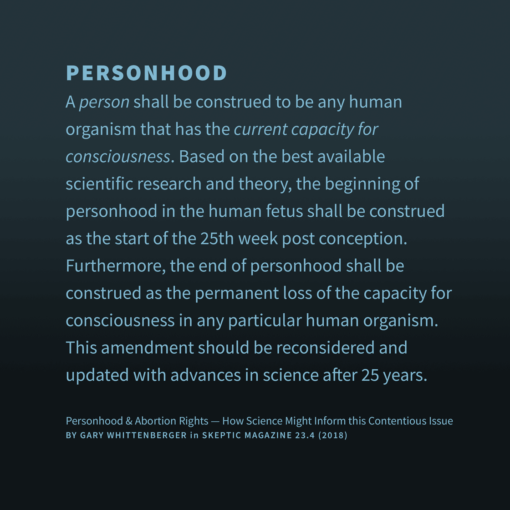
Although it’s been 45 years since Roe v. Wade, abortion continues to be a highly controversial and polarizing issue. In this essay, Gary Whittenberger articulates the philosophical and scientific foundation for a third option between the two extremes of pro-life and pro-choice — the pro-person position — after examining the evidence for the best possible answer to the question: “When does the human fetus acquire the capacity for consciousness?” This article appeared in Skeptic magazine 23.4 (2018).
eSkeptic for February 13, 2019

Although it’s been 45 years since Roe v. Wade, abortion continues to be a highly controversial and polarizing issue. In this essay, Gary Whittenberger articulates the philosophical and scientific foundation for a third option between the two extremes of pro-life and pro-choice — the pro-person position — after examining the evidence for the best possible answer to the question: “When does the human fetus acquire the capacity for consciousness?”
eSkeptic for January 16, 2019
Michael Shermer responds to Richard Weikart’s critique of his January 2019 column in Scientific American: “Stein’s Law and Science’s Mission: The Case for Scientific Humanism. And, in Science Salon # 50, Michael speaks with Dr. Rachel Kleinfeld, a senior fellow at the Carnegie Endowment for International Peace, where she focuses on issues of rule of law, security, and governance in post-conflict countries, fragile states, and states in transition.
Dr. Rachel Kleinfeld — A Savage Order: How the World’s Deadliest Countries Can Forge a Path to Security

In Science Salon Podcast episode # 50, Michael Shermer speaks with Dr. Rachel Kleinfeld, a senior fellow at the Carnegie Endowment for International Peace, where she focuses on issues of rule of law, security, and governance in post-conflict countries, fragile states, and states in transition.
Moral Philosophy and its Discontents

Michael Shermer responds to Massimo Pigliucci’s critique of his Scientific American column on utilitarianism, deontology, and rights, entitled “You Kant be Serious: Utilitarianism and its Discontents.” (May 2018).
eSkeptic for February 14, 2018
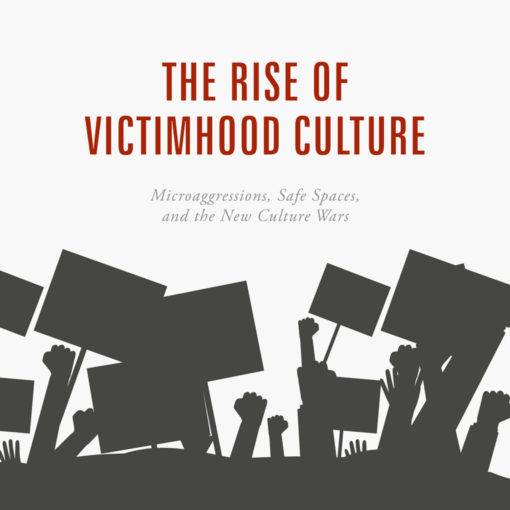
In this week’s eSkeptic, Kevin McCaffree reviews the forthcoming book The Rise of Victimhood Culture: Microaggressions, Safe Spaces, and the New Culture Wars (March 21, 2018) in which sociologists Bradley Campbell and Jason Manning have produced the first systematic theoretical analysis of the moral culture of “victimhood” emerging on university campuses
Honor, Dignity, Victim: A Tale of Three Moral Cultures

Kevin McCaffree reviews the forthcoming book The Rise of Victimhood Culture: Microaggressions, Safe Spaces, and the New Culture Wars (March 21, 2018) in which sociologists Bradley Campbell and Jason Manning have produced the first systematic theoretical analysis of the moral culture of “victimhood” emerging on university campuses.
eSkeptic for March 29, 2017
It was 20 years ago this week, March 20–26, 1997, that 39 members of the Heaven’s Gate cult “graduated” from this life to ascend to the UFO mothership that they believed would take them to an extraterrestrial paradise.
eSkeptic for August 8, 2016
Michael Shermer on “The Quack of the Gaps Problem: Facilitated Communication, Autism and Patients’ Rights”; MonsterTalk episode 109: Blake Smith interviews James Randi’s about his late-night AM radio show: Long John Nebel “Party Line”; plus, Mr. Deity: The Bourne Again Identity, an episode in which a couple takes in a young believer suffering from dissociative amnesia.
10-08-25
In this week’s eSkeptic, Raymond A. Eve discusses an empirical study of the difference between the beliefs of wiccans versus those of creationists.
SKEPTIC App
Whether at home or on the go, the SKEPTIC App is the easiest way to read your favorite articles. Within the app, users can purchase the current issue and back issues. Download the app today and get a 30-day free trial subscription.








